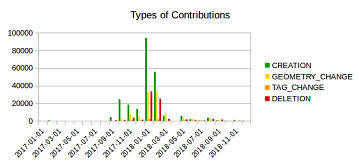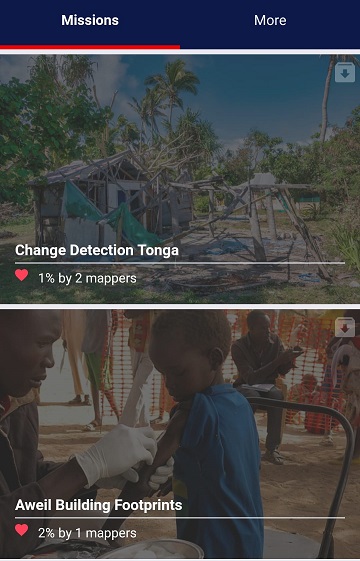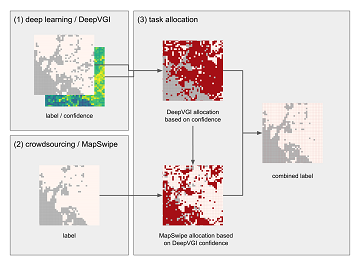In the context of the United Nations World Data Forum 2021 organised by the United Nations Statistics Division and UN member states a series of blogposts has been published by UNSTATS. Among them is one by Alexander Zipf about improving … Read More
Deutsch
UndercoverEisAgenten – “UndercoverEisAgenten” – Enabling Citizen Scientists to Monitor Permafrost Degradation
Die Folgen des Klimawandels sind besonders stark in den höheren Breiten unseres Planeten zu spüren. Die Arktis erwärmt sich derzeit überdurchschnittlich schnell. Dies führt zum Auftauen von Permafrost (dauerhaft gefrorenen Böden) mit ernsthaften Konsequenzen für das arktische Ökosystem. Etwa ein … Read More

Mapping Rohingya Refugee Camps in Bangladesh – An Analysis Using the OSHDB API
Humanitarian mapping activations show increasing numbers of contribution. This blog post illustrates the specific potential of the OSHDB API [1] for detailed analyses of such activations by means of a case study. The examined area is Cox’s Bazar in Southeast … Read More
Invited talk at the Spatial Data Science Symposium 2019, Santa Barbara
The Center for Spatial Studies, Department of Geography at the University of California, Santa Barbara is hosting the Spatial Data Science Symposium 2019 this coming week with the title “Setting the Spatial Data Science Agenda” Over 40 selected participants will … Read More
MS Wissenschaft beendet Tour zur Künstlichen Intelligenz – aber weiter geht es im Web – auch mit unserem Exponat zu Trainingsdaten für Satellitenbilder
Gerade beendete die MS Wissenschaft ihre Tour durch 31 Städte zwischen Berlin und Wien in diesem Wissenschaftsjahr zum Thema “Künstliche Intelligenz“. 85.000 Menschen – Schulklassen, Familien und Interessierte aller Altersklassen – besuchten die Ausstellung zum Thema lernende Computersysteme an Bord … Read More

MapSwipe 2.0: Reimagining how a mobile app can support humanitarian response worldwide
In 2015, MapSwipe began as a solution to a complex question: how do we better identify where communities and populations are, allowing mapping to be more efficient and effective? Using a simple mobile app, volunteers are able to swipe through … Read More

Mapping Human Settlements with Higher Accuracy and Less Volunteer Efforts by Combining Crowdsourcing and Deep Learning
Our new paper on Machine Learning and Humanitarian Mapping Nowadays, Machine Learning and Deep Learning approaches are steadily gaining popularity within the humanitarian (mapping) community. New tools such as the ML Enabler or the rapId editor might change the way … Read More
Exponat aus Heidelberg bietet Training für KI-Algorithmen auf der MS Wissenschaft
Mitmach-Exponate geben auf der MS Wissenschaft in Heidelberg vom 28. August bis 1. September Einblicke in die Entwicklung und Anwendung Künstlicher Intelligenz (KI). Mit auf dem zu einer schwimmenden Ausstellung umgebauten ehemalige Kohlefrachter ist auch ein Exponat des Heidelberg Institute … Read More
HeiGIT/ GIScience at ISCRAM conference in Valencia
19th-22nd of May, the 16th Information Systems for Crisis Response and Management (ISCRAM) conference is taking place in Valencia. Likewise to previous years, the GIScience Research Group/HeiGIT are taking part and supporting with several contributions. Martin Hilljegerdes will present a … Read More
GIScience / HeiGIT at ICT for Development, Kampala – Usage and Analyses of OpenStreetMap for Development
The 11th Information Communications Technology for Development (ICT4D) Conference brings together hundreds of public, private and civil society organizations, eager to share practical insights on applying digital technology to development, humanitarian, and conservation challenges. Participants share how they are using … Read More
